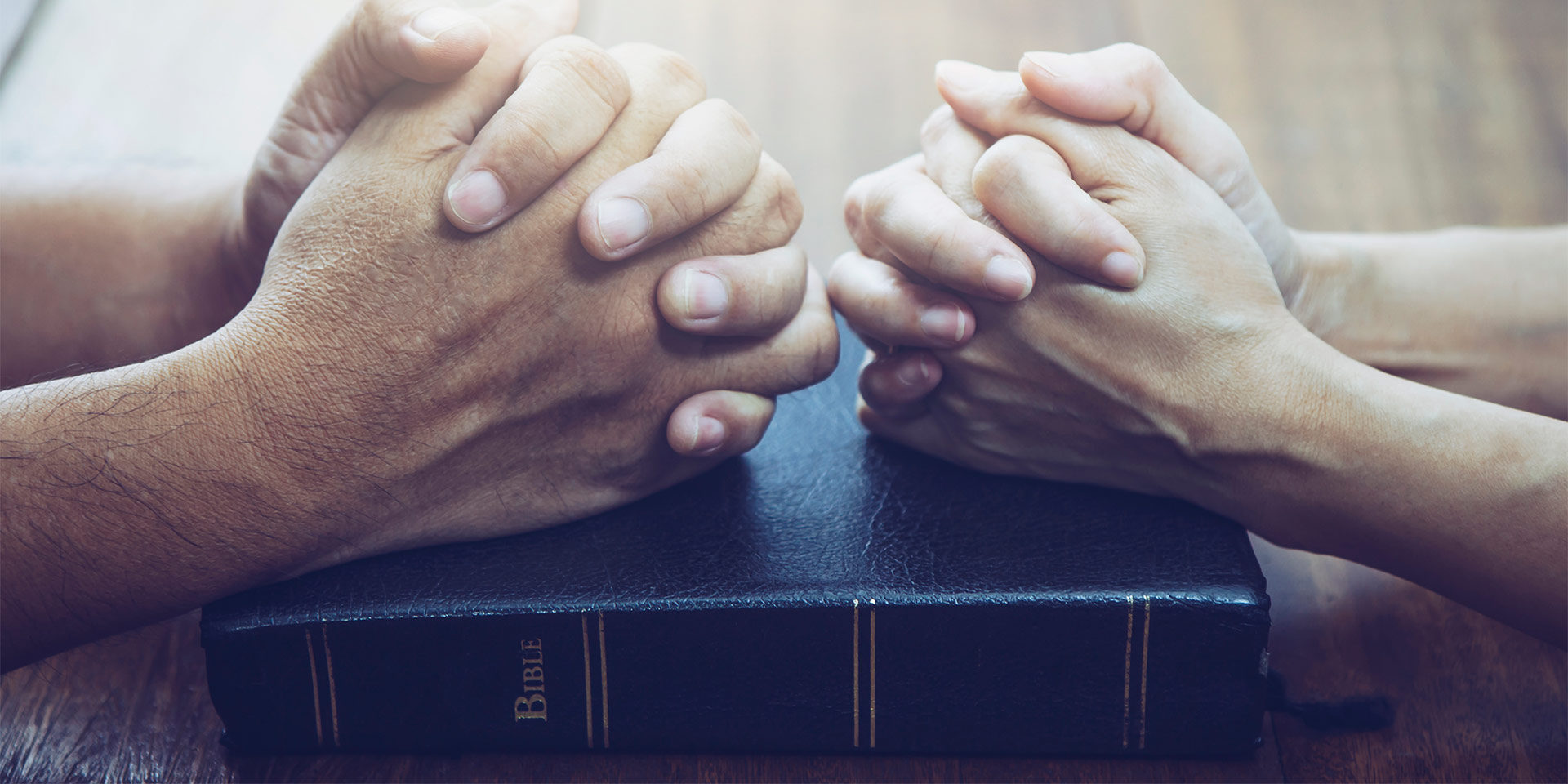Live the questions now. Perhaps you will then gradually, without noticing it, live along some distant day into the answer. – Rainer Maria Rilke
Those words by the Austrian poet, Rilke, became a personal philosophy for the Christian writer Kimberly Penrod Pelletier, after the shock she received at the loss of her husband’s faith. He had been an active Christian, involved in serving others, but after 10 years of marriage he announced to Kimberly that he was no longer sure that God even existed.
Christianity had been the centre of their lives, and so Kimberly felt that her husband was abandoning her as well as his faith. She had no idea how to cope with the web of questions woven by his change: What doubt had begun to bite into her husband’s strong faith? What will he tell the children, and how will this news affect them? What would their relationship be like now, when all the things they had had in common were fading in front of their eyes?
For their relationship to survive and regain its former stability, Kimberly and her husband needed to find a way to rebuild everything. They needed a foundation to build on.
Religious similarity and marital stability
Over time, several studies have shown that there is a link between religious homogamy, and the quality of the couple’s relationship. Although religious commitment is not a safe barrier against divorce, those who are dedicated to the biblical view of marriage as a lifelong covenant enjoy a better relationship.
The conviction that marriage is sacred and that marriage is part of God’s plan results in more stable marriages. These marriages grow, stay motivated, and are happier, researchers Michael Goodman and David Dollahite have discovered. A 2015 study led by researcher David Mullins showed that most partners who prayed together and participated in worship services reported an increase in intimacy and unity.
Adults in mixed religious marriages are generally less religious than married people who share their faith. They pray less, attend church less often, and are less inclined to consider religion a very important part of their lives, a study by the Pew Research Center found. Nearly two-thirds of couples who shared a faith said that the similarity of religious beliefs was an essential condition for a successful marriage. While 19% of couples with the same religion as their partner report having religious disputes, the percentage almost doubles in couples where one partner is religiously affiliated and the other is not.
An underestimated difference
The idea of marriage between people who do not share common religious values should be evaluated much more deeply than is generally the case, writes journalist Naomi Schaefer Riley in her book Till Faith Do Us Part: How Interfaith Marriage is Transforming America.
Different religious values affect monetary decisions, leisure choices and, especially, the raising of children.
The book is based on a survey Riley commissioned, which compares couples in which partners have the same faith with mixed-religious relationships. According to the survey, mixed religious marriages are on the rise in the United States, with Mormons the least likely and Jews the most likely to enter into such a marriage. However, religious heterogamy increases the risk of the marriage dissolving, with data showing that evangelicals who marry people of other faiths have a 50% higher risk of divorce, and in the case of Jews the risk is twice as high. In addition, the level of marital satisfaction reported by mixed religious couples is lower than for those who share the same faith.
“We live in an age where people want to know everything about the person they will marry. But this major issue seems to have been overlooked,” says Riley, stressing that religious values affect those areas where partners struggle the most to have the last word: money, free time, and, most importantly, raising children.
Despite popular myths, there is nothing else that more clearly brings to light “the most hidden ideas and ideals about identity, culture and family” than having children, says psychologist Joshua Coleman. When we become parents, this new status triggers memories from our childhood, both positive and negative, and this is an opportunity to “contribute to the development of your children’s identities, but it is also an opportunity for you to enrich and enliven your own identities, and religion is part of your identity”.
This is a reality that is very well known to couples in which one of the partners gave up on the religious values with which they initially set out. In this scenario, at least one of the partners feels betrayed, deceived in their choices and expectations from the beginning of their marriage, but also confused about how the relationship will withstand such a radical change.
Looking at things through the eyes of the “betrayed” partner
“I remember thinking that it would have been easier to deal with my husband’s death than to see him lose his faith. I never had a close non-Christian friend and I didn’t even know any atheists up close—and now I was married to one,” says Hope, summarising the drama she experienced after her husband, David, gave up Christianity.
They had both been Baptists, and David was preparing to become a pastor, but he lost faith in the teachings of the Bible. For a time, he hid his growing doubts for fear of losing his family.
“I remember thinking that it would have been easier to deal with my husband’s death than to see him lose his faith.”
For Hope, the news was tantamount to the end of her life and marriage. Nothing worked according to the old patterns of the relationship, and decisions that until then had been very simple, were now often negotiated in anger, especially if they were related to children. “The change has aggravated every vulnerability in our relationship,” says Hope, admitting that she had never felt so alone.
Devastation—this is the word that comes up in every story of this kind. The one who remains true to their beliefs about life, God, and religion does not know how to handle the new and frightening reality of their partner’s faltering faith. The person closest to them suddenly becomes a stranger, the range of common concerns suddenly narrows, and topics that used to be viewed in the same way now stir up contrary opinions.
“He is not the man I fell in love with and I would never have married him if I had known that something like this would happen,” a woman, under the pseudonym “Alone in the Church”,writes to a Christian psychologist.
The feeling of isolation deepens when those concerned try to hide their religious doubt from their partner, at least for a while, in the hope that it is only a temporary slippage. “When my husband distanced himself from the church and the gospel, we entered a season of emotional and spiritual isolation,” says Rachel Joy Welcher, editor of Fathom Magazine. She was not ready to share the news with her church members, or to talk about it without bursting into tears, so she gave evasive answers about her husband’s absence, and even went to a church where no one knew her.
Sometimes, relatives do not react well to such news. Hope says that some of her friends and family turned her back on her husband, punishing him for his choice.
Right after the change of a partner’s perspective on life fills every corner of family life, partners must learn to adapt to the new reality. Re-calibrating the relationship takes time and energy, but the partners who remain anchored in their religious beliefs say that all this effort is worthwhile. If, in the end, they manage to give up their dreams and expectations, learning to rebuild everything with patience and love, the relationship will be stronger.
Not a full stop, but a semicolon
“As difficult as it may be, it is still possible to love your husband even if he chooses a different path of faith,” therapist Geoff Steure writes to a wife troubled by changes in her husband’s life. She says, among other things, that her husband changed his behaviour a lot, and even started flirting with other women.
There are several types of betrayals and it is important to distinguish between them, Steure points out. He admits that while they are all violations of initial promises, some can be accepted, while others cannot. In this situation, it is important to clarify whether, after losing trust in religion, the partner still believes in marriage and marital fidelity. If the answer is yes, most marriages can withstand religious differences.
Marriage is a covenant made before God, and the fact that a partner renounces his faith does not change this reality at all.
The process of readjusting a relationship is a long one, and partners need to look for those things which they still agree on, instead of only focusing on the disagreements. Each must learn to give the other’s beliefs space, and listen to their partner’s concerns. Finally, it is essential for the couple to spend leisure time together, strengthening common interests and the friendship between partners.
Even a religiously mixed marriage can be happy, Hope says, though she admits she and her husband still have their struggles. Trusting in God and practicing unconditional love helped Hope through this process, and she believes that they are now able to respect each other’s choices and reach helpful compromises more easily. Although she hopes that David will reconsider his decision in the future, Hope says that even if this never happens, it would not change anything in her relationship, because she loves her husband. “True love does not act lovingly from the cause of what one hopes to get from the other person. True love remains open.”
No matter how painful a partner’s choice to move away from God is, the other may still choose to view the marriage as a triangle from which God has not disappeared, whether the partner acknowledges this or not. Marriage is a covenant made before God, and the fact that a partner might renounce their faith does not change this reality at all.
Christian author Nancy Kennedy admits that for many years she was unwittingly writing a textbook on how to get your partner to reject your faith by wrapping her husband’s lunch in biblical pamphlets, closing love notes with Bible verses, and constantly nagging him. Eventually, she found a better way to manage their relationship. She is no longer absorbed in the task of converting her husband as a means to marital fulfillment. Instead, she is grateful for the beautiful aspects of the relationship and prays for those that are still faltering. She has imagined, thousands of times, the day when her husband would tell her that he had discovered God. And she prays for this dream, but if this change takes 80 years, she says, she will make them the most beautiful years possible.
Even if a partner suddenly changes the rules of the game, and makes life difficult to manage, the reality is that every marriage faces its problems. So, it takes patience and wisdom to build bridges that withstand any weather. And in this strenuous endeavour, the Christian can count on the help of the One who made a bridge over the abyss between heaven and earth with His flesh, His blood, and His life.
Carmen Lăiu is a writer for ST Network and Semnele timpului.



















